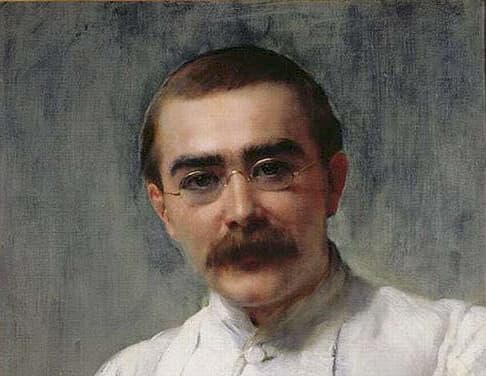Poem of the Day: ‘When Earth’s Last Picture Is Painted’
Kipling was an Aesthete, and it shows up from time to time in his short stories, his interests in art, and his poetry. Here he pictures heaven for the artist as the chance for cosmic art.

For 75 years now, Rudyard Kipling (1865–1936) has been threatening to break back though to the position he held when, in 1907, he became the youngest winner of the Nobel Prize — acknowledged as a genius and one of the great figures of English literature. And for 75 years, it hasn’t ever quite happened. The Edwardian complaint of vulgar imperialism has carried through, exaggerated by the current wokism that refuses to see anything but what its narrow lenses show it. One oddity is often missed by both those who praise Kipling and those who sneer at him — and that is his never-quite-lost love of the Aesthetes who seemed the peak of advanced literature when he was young. Kipling was an Aesthete, and it shows up from time to time in his short stories, his interests in art, and his poetry. In the alexandrines of “When Earth’s Last Picture Is Painted,” a poem printed as the l’envoi to his 1896 collection of short stories, “The Seven Seas,” he pictures heaven for the artist as the chance for cosmic art, where the artist “Shall draw the Thing as he sees It for the God of Things as They are.”
When Earth’s Last Picture Is Painted
by Rudyard Kipling
When Earth’s last picture is painted and the tubes are twisted and dried,
When the oldest colours have faded, and the youngest critic has died,
We shall rest, and, faith, we shall need it — lie down for an aeon or two,
Till the Master of All Good Workmen shall put us to work anew.
And those that were good shall be happy; they shall sit in a golden chair;
They shall splash at a ten-league canvas with brushes of comets’ hair.
They shall find real saints to draw from — Magdalene, Peter, and Paul;
They shall work for an age at a sitting and never be tired at all!
And only The Master shall praise us, and only The Master shall blame;
And no one shall work for money, and no one shall work for fame,
But each for the joy of the working, and each, in his separate star,
Shall draw the Thing as he sees It for the God of Things as They are!
___________________________________________
With “Poem of the Day,” The New York Sun offers a daily portion of verse selected by Joseph Bottum with the help of the North Carolina poet Sally Thomas, the Sun’s associate poetry editor. Tied to the day, or the season, or just individual taste, the poems will be typically drawn from the lesser-known portion of the history of English verse. In the coming months we will be reaching out to contemporary poets for examples of current, primarily formalist work, to show that poetry can still serve as a delight to the ear, an instruction to the mind, and a tonic for the soul.
